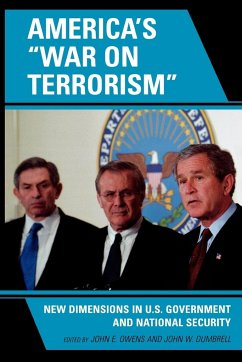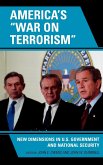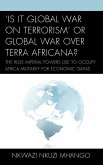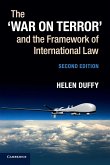America's 'War on Terrorism': New Dimensions in US Government and National Security offers an original and multifaceted analysis of the Bush administration's responses to 9/11. The book brings together American and European analyses of the enormous institutional, political, an...
Hinweis: Dieser Artikel kann nur an eine deutsche Lieferadresse ausgeliefert werden.
Hinweis: Dieser Artikel kann nur an eine deutsche Lieferadresse ausgeliefert werden.
Now that the reality of 9/11 has sunk in, this group of U.S. and European scholars puts the fallout and blowback of the terrorist attacks into perspective. From the implications of 9/11 for separation of powers in the United States, to the international ramifications for alliance politics, these insightful essays place the U.S. war on terror into theoretical and historical perspective. Students and scholars alike will benefit from these excellent analyses. -- James P. Pfiffner, George Mason University This is an excellent resource for anyone interested in probing the political and policy consequences of the U.S. war on terrorism. Owens and Dumbrell are to be commended for bringing together a capable group of seasoned scholars to create a provocative and highly insightful collection of essays. One of the volume's clear strengths is its theoretical and substantive breadth. An impressive array of actors, policy tools, and conceptual approaches are covered within a relatively short amount of space. -- Christopher M. Jones, Northern Illinois University Since the September 11 attacks, the 'global war on terrorism' has cast a large shadow on American foreign policy. President Bush has frequently linked a wide range of American actions-notably but not exclusively in Iraq-to the GWOT. This timely collection of incisive essays touches upon such important issues as the growth of unilateral and discretionary presidential powers, the distinction between preemptive and preventive war, intelligence failures, alliance relations, and many others. It is thus essential reading, all the more so because we are entering the 2008 election season. -- Ole R. Holsti, Duke University








